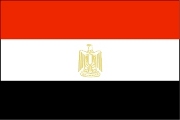
Egypt (MNN) — Two separate attacks are keeping Egyptian Christians on their toes, according to Open
Doors. In both incidents, individual arguments sparked violent reactions from Muslims in the entire village.
Curfews were imposed, but Open Doors reports that security forces are not doing enough to avert attacks on Christians.
In the first case, 18-year-old Mohamed Ramada Ezzat went to the grocery store of a Christian man. In a dispute over an alleged debt that Ezzat owed the grocer, the grocer's 20-year-old son
stabbed Ezzat. Ezzat died in the hospital later that evening. In response, his family burned the grocer's store as well as two of his family members' apartments.
After Ezzat's funeral, Muslims again attacked Christian homes, and 25 Christians were injured. Christians stayed mostly in their homes in fear.
The grocer, his two sons, and his wife were arrested. The three men will be charged with
manslaughter while the wife was released for health reasons. Reports say that Ezzat's father implied that if his son's death was not vindicated by the court, he would see to it
himself.
Coptic Christian experts believe that authorities have a hand in the violence. "The police are more than capable of controlling any situation if they want to," said Ibrahim
Habib, chairman of U.K.-based United Copts, of the apparent lack of control during Ezzat's funeral. "This is deliberate, I think. Some authority in the police feels that this is a time to teach Christians a lesson, to humiliate them according to sharia [Islamic
law], to treat them as dhimmi, to treat them as second class citizens. If the government is serious, it is more than capable of controlling things."
The second case happened just five kilometers from the first a few days later. When rumors spread that Christians were planning to use a large building for church services, Muslims
in the village set fire to a warehouse next door to the building. The Christians had owned the building for three years but not been able to hold services there for lack of official
permission. The church's priest believes that their application for using the building was denied because of its proximity to the local mosque.
"Christians are forced to pray in the street, and other villagers pass through them with their cattle; this leads to friction," said the priest. "So isn't it better to pray within four walls than in the streets, humiliated?"
This was the first time the two communities had clashed, according to the priest.
In previous cases, priests have had to leave the villages after violence. The report indicated that the priest in the latter case has already done so.
Habib of United Copts has expressed concern over the lack of religious freedom and protection that Coptic Christians are getting from security forces, though they are granted religious freedom in theory. "The national security force is a danger, and the police are not even-handed," he said. "Even when it comes to court, they do not supply enough evidence; the Islamists have infiltrated the courts, and this is a bad recipe for Egypt. We are really worried about what will happen in the future to the Christians."

